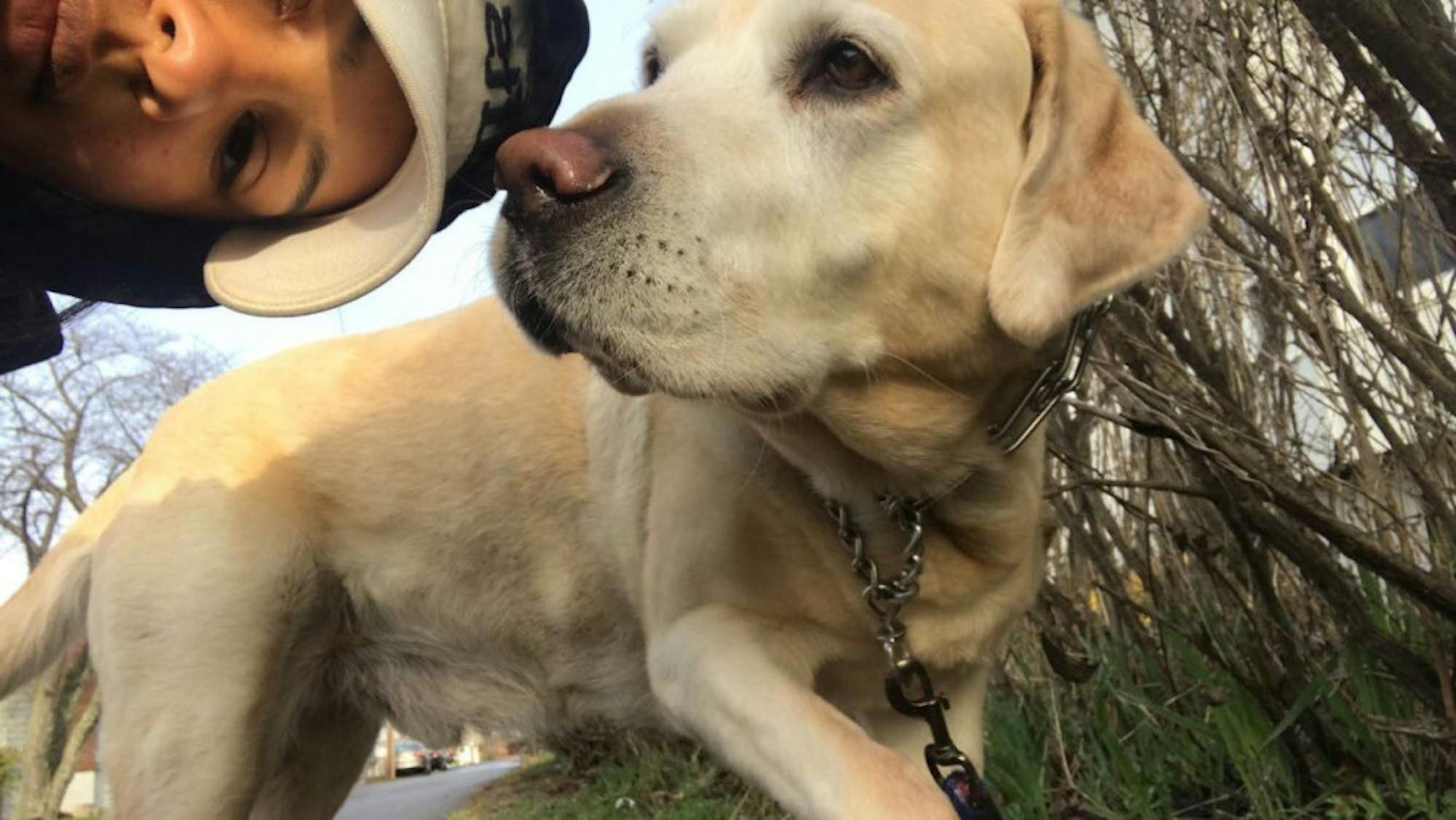During stressful periods of the semester, seeing a dog in Tisch Library may light up the day for students cramming inside. While events featuring dogs and other animals happen on campus a handful of times throughout the year, the desire for more consistent pet contact has prompted many students to search out animal interaction in other ways.
Tufts provides several resources and programs centered around human-animal interaction, which are designed to help students enjoy their college experience. Animal Aid is a subgroup of the Leonard Carmichael Society (LCS) at Tufts and coordinates with Medford and Somerville residents to provide dog walking services. Madison Clay, a senior at Tufts, began walking her neighbor's dog during the second semester of her sophomore year after finding the gig with the help of her volleyball coach. Having had experience taking care of her sister’s dog, Clay craved pet interaction at college.
“I treat my sister’s dog like my own,” Clay said. “I have a key to her house, so during the summer I go by her house and steal her dog for runs while she’s at work. I miss him! I wish dogs understood FaceTime.”
For Clay, dog walking has turned into a weekly opportunity to destress.
“My mood is definitely better during and after dog walks,” Clay said.
It’s no surprise that Clay’s weekly dog walks have a positive effect on her mood. Dr. Megan Mueller, an assistant professor at the Cummings School of Veterinary Medicine at Tufts who specializes in human-animal interaction, stated that pets can provide invaluable emotional support.
“Many of us rely on our pets for comfort, especially during times of stress,” Mueller told the Daily in an email.
While Clay has found her perfect fit through dog walking once a week, many other students look for even more immersive ways to interact with animals. Tufts offers three different programs: Service Animals, Animal Assisted Therapy (AAT) and Animal Assisted Interaction (AAI).
Under Tufts policy, service animals can be a dog or miniature horse that is trained to assist a student with a disability of any kind. Students are not required to register service animals with Student Accessibility Services. However, it is strongly recommended.
“While pets are wonderful, they are also certainly a responsibility and require care that can vary by species, a goldfish is different than a horse,” Mueller wrote. “Especially in college, where students may be living in close proximity and small spaces, it’s important to keep in mind your own schedule and space to figure out what type of animal would be best for you and feasible in your life.”
Should a student be unable to commit to or support a service animal, there are still other ways to receive quality pet time. Some counselors at Counseling and Mental Health Services (CMHS) use their own dogs in therapy appointments to assist in the session. Tufts also has a certified therapy dog named Angel with whom students can schedule a free fifteen-minute appointment.
The third type of animal-based program Tufts offers is AAI. Handlers and their dogs fill the Tisch lobby, the Academic Quad or other popular hangouts for students to pet, play and destress. These events are coordinated by the Director of Health Promotion and Prevention Ian Wong.
“We know that the blood pressure and heart rate of people being with animals drops. What I think is when you see the dogs, you calm down, and then what seemed like an impossible thing to learn doesn't seem impossible anymore,” said Wong. “If I took a 3-foot by 3-foot board and put it on the ground and told you to jump on it, you could do it. But if I take that board and raise it higher, 20, 30, 40, 50 feet, could you do it? No. I didn’t make the board smaller, but you’re looking off the sides thinking you’re going to fall. So with animal-assisted interactions, we try to bring you back down.”
Wong works with the Tufts Paws for People, which is a non-profit organization through the Cummings School of Veterinary Medicine at Tufts that finds volunteers willing to support AAI events like the ones organized at school.
“We know from the data that the impact from the dogs lasts about 24 to 36 hours. Really, how do we strategically use them knowing finals are coming, midterms are coming, to say you need to relax now, and then let’s go back to studying,” Wong said.
Though many students would love to see service animal events hosted more often, Wong explained why the program chooses to focus on especially stressful times.
“We are concerned with our students as much as we are concerned with the dogs, or any other pets that come in," Wong said. "A lot of students and student groups want to have dogs, but again, we don’t have that many dogs and they’d be worn out if it were everyday."
While any type of human-animal interaction can be an addition to therapy, Wong says there is still more work to be done on the mindfulness front. The animal contact is a stepping stone to a greater state of self-awareness.
“The dogs, the therapy animals, are just one part of this,” Wong said. “So you might see our Kuru mindfulness projects and all these other things out there. Let’s also teach [students] how to meditate, let’s teach some mindfulness pieces.”
Animal groups at Tufts provide students with study breaks, emotional support

Cotton poses for a photo with senior Madison Clay on April 19, 2018.





